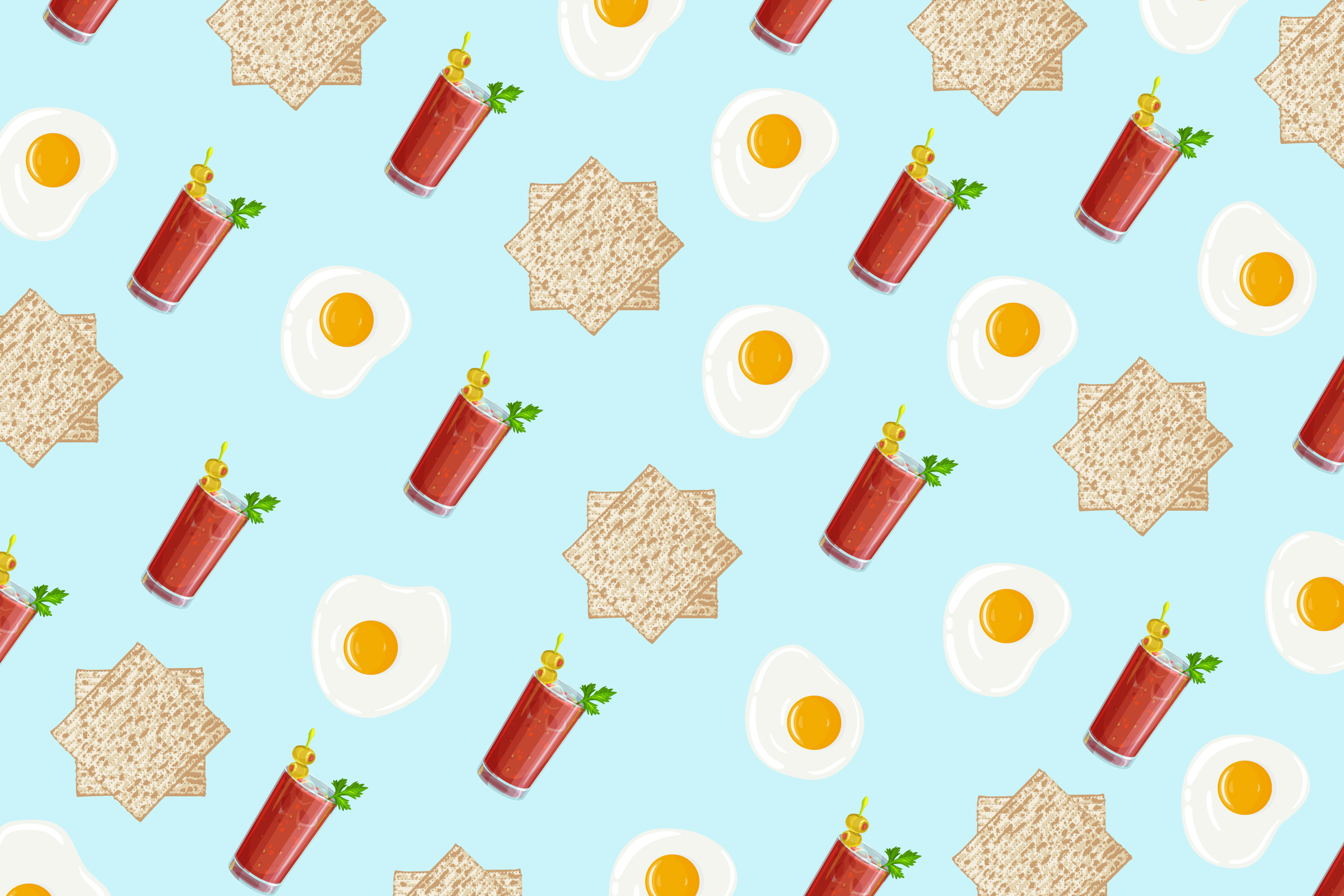Passover is the holiday of freedom. Yet as we prepare for a Passover spent sheltering at our respective homes, settling for Zoom calls to simulate communal gathering, and making an entire brisket for three people, we must admit that seder 2020 consists of lackluster accommodations to a stifling reality. Given this very confined version of the holiday of liberation, Jews must take any opportunity to liberate ourselves with a freedom not of the body, but of the mind. True freedom is the ability to reimagine the world as we want it to be.
That is why I propose that this year, when all of our ingrained practices are impossible to fulfill, we throw caution to the wind. I humbly submit a two-part proposal to address the seder’s number one ritualistic assumption, which is also its greatest liability. This proposal offers a single radical change that will finally align the observance of Passover with its most important theme:
Seder should not be a dinner meal. Seder should be a brunch.
This switch prioritizes our ability to genuinely experience the holiday’s themes for ourselves. Passover is the time where we not only remember the Exodus story but are supposed to see ourselves as among those who were freed from Egypt, who tasted freedom and can distinguish it from our experience of oppression. And yet: a mismatch has developed between the medium of a highly structured dinner party and the message of freedom, leisure, and ease.
If you have ever hosted a seder, I shouldn’t need to explain this further. The days spent cooking, the delicate staging of courses, the massive effort to clean and rearrange every room of one’s home to accommodate guests, the sheer amount of infrastructure required (books, water glasses, Kiddush cups, seder plate, crudité plate, et al.), all adds up to a stressful, exhausting, and highly condensed experience that feels more oppressive than liberating.
Additionally, every seder attendee can attest to the awkwardness of the format, even under the best direction. For the many Jews who are not traditionally observant, a several-hours-long structured dinner party, in which one does not even eat until several hours after arrival, is a straining experience following a long workday. Kids get antsy. Adults get antsy. You’ve got widely varying levels of investment in the formal programming. Amidst all this, we think a seat cushion that doesn’t even fit its chair is a sufficient gesture of the comfort and leisure we are supposed to experience as freed people.
You get it. These are familiar complaints. Let’s move on to the good stuff.
Brunch! The true meal of people of leisure. Its very existence signals that we are a people who can sleep late, who can arbitrarily conflate entire categories of meals, who can spend an entire day hanging out with nowhere to go and nothing to do but eat and refill our drinks and tell increasingly rambling stories. Brunch is primarily a weekend meal (the thesis of brunch = freedom applies double if weekday brunch is something you can have in your life); weekends are by definition the time we have designated for non-work. (This concept is a little more complicated but I don’t have space in this post to get into the work of Theodor Adorno.)
Okay, but *can* you do this, you might ask? Well, if you’re going for fealty to tradition, Seder Brunch will not work for you. Yes, the nighttime seder parallels the night spent huddled behind blood-stained doorframes to ward off the Angel of Death. Yes, Jewish holidays all start on the preceding evening, because of the whole it-was-evening-it-was-morning thing. Sure. But, as it is written in the Torah of Twitter: porque no los dos? Why not both? Take it from me, a renowned injector of irreverence, the person who made the definitely-Christian frequent-user-of-Egyptian-iconography Beyonce into a Passover icon. Keep a nighttime seder, but experiment, play, explore the possibility of celebrating in the shining light of day, not the grim cowering of night.
There are brunch rituals that lend themselves seamlessly to the seder. It’s easy to get to four cups of wine with bottomless mimosas or kir royales. Don’t let that stop you from also providing a Bloody Nile bar — the mixer uses up horseradish, the tomato red is a far more potent version of the drops of wine to commemorate each of the 10 plagues, and technically your pickle or celery garnish is already a form of karpas in salt water. Obviously any and all egg dishes will be well-placed here, including matzah brei. Hash browns are already a better version of potato kugel. For those who define brunch as a dairy-forward meal, put the tubs of Temptee out and let everyone go to town. For meat eaters, you can find reassurance in the fact that brunch menus already serve burgers, so there is no conflict with continuing to serve brisket and matzah ball soup.
Beyond the culinary parallels, however, is the atmospheric upgrade. Brunch is the meal in which we are content to linger and tell rambling stories. Imagine an open-house version of the seder, a drop-in, sit-wherever house party, guests swanning around with champagne flutes, breaking into Had Gadya while draped on the couch. We should celebrate this holiday with the freedom of choosing not just that we have this holiday to celebrate, but the creativity and imagination to determine how we do so. That is our liberation: to hold Passover more lightly, to live real relaxation and freedom, instead of exhaustedly reciting its slogans. Next year, may we all be free. Next year, may we celebrate at brunch.



